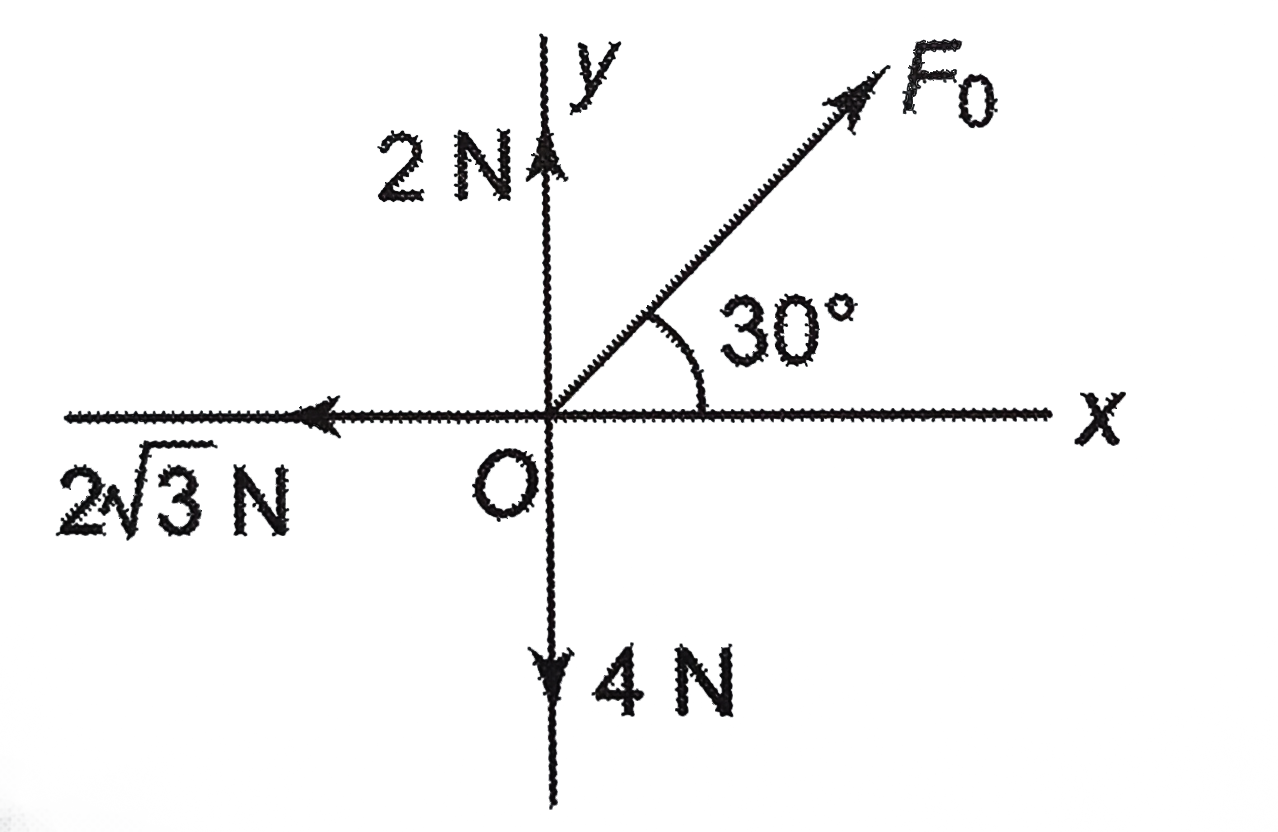If the resultant of the following forces is zero, find the value of F0.

Video Solution
Text Solution
If a vector is zero , its components are zero.
If →A=0,i.e.Ax=0,Ay=0,Az=0
In this problem , the x-component of the resultant force
Fx=F0cos30∘−2√3=0
F0√32−2√3=0⇒F0=4N
|
Topper's Solved these Questions
Similar Questions
Knowledge Check
If the resultant of all external forces is zero, then velocity of centre of mass will be
AzeroBinfiniteCconstantDeither 'a' or 'c'Statement-1: If the resultant of all the forces acting on a system is zero then the torque on the system about any point is same.
Statement-2: If the resultant of the forces acting on a system is zero then acceleration of its centre of mass is zero.AStatement-1 is true, statement-2 is true and statement-2 is correct explanation for statement-1.BStatement-1 is true, statement-2 is true and statement-2 is NOT the correct explanation for statement-1.CStatement-1 is true, statement-2 is false.DStatement -1 is false, statement -2 is true.If resultant of forces acting on a system is zero then
AWork done by each force must be zero .BTotal work done by all forces must be zero .CTotal work done by all the forces may be non - zeroDKinetic energy of the system must remain constant .
If the resultant force on a system of particles is non-zero, then:
View SolutionTwo forces equal to (F) and ( 3 F) newton act on a particle . If the first force be tripled and the second froce be increased by 30 neqton, the disrction of the resultant is unaltaerd. Find the value of (F).
View SolutionWhich of the following has zero value for DfH∘?
View SolutionA particle moves under the action of a force F=20ˆi+15ˆj along a straight line 3y+αx=5, where, α is a constant. If the work done by the force F is zero the value of α is .
View SolutionResultant of which of the following may be equal to zero ?
View Solution

